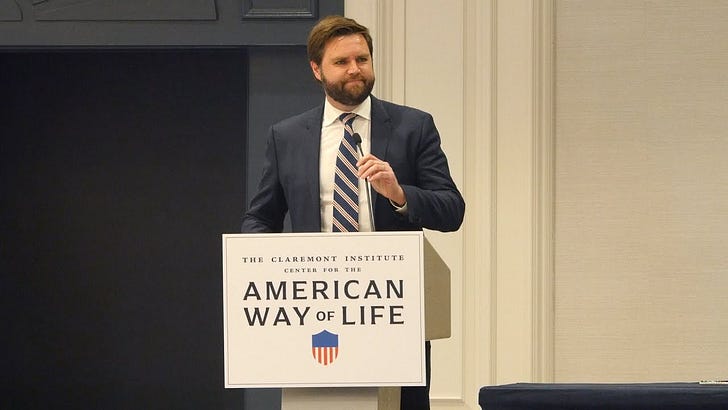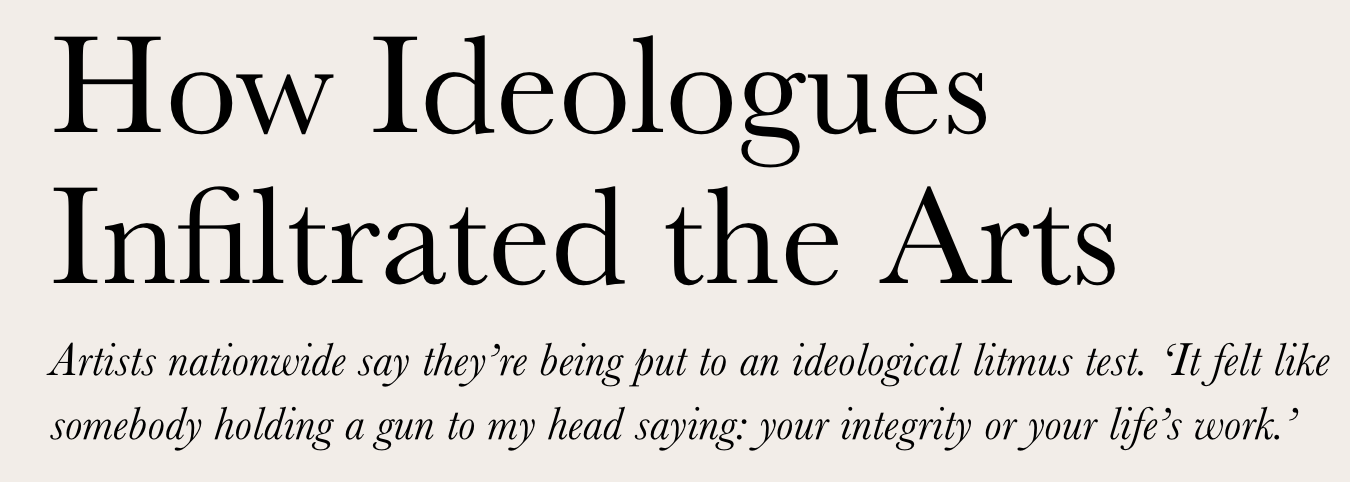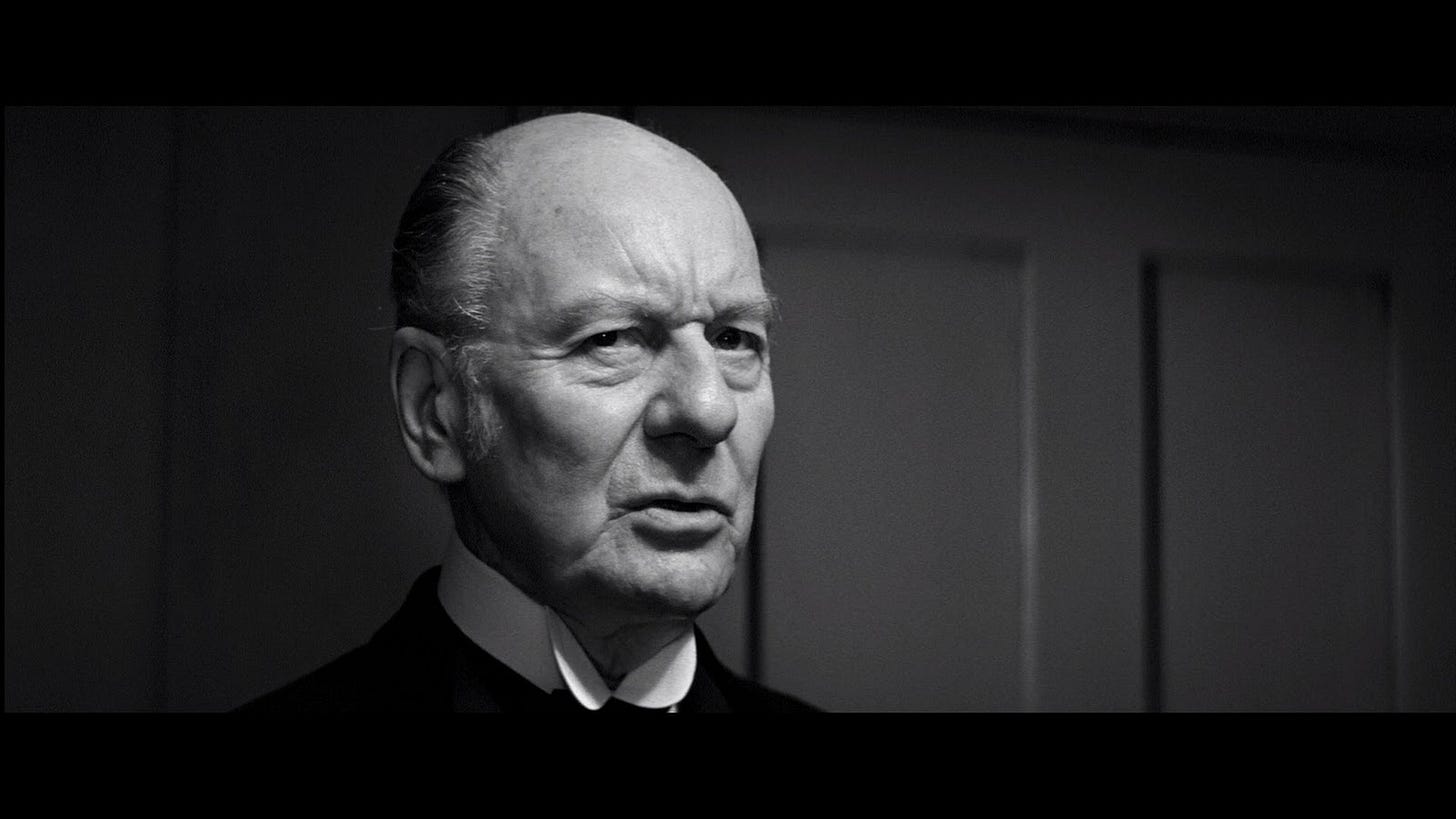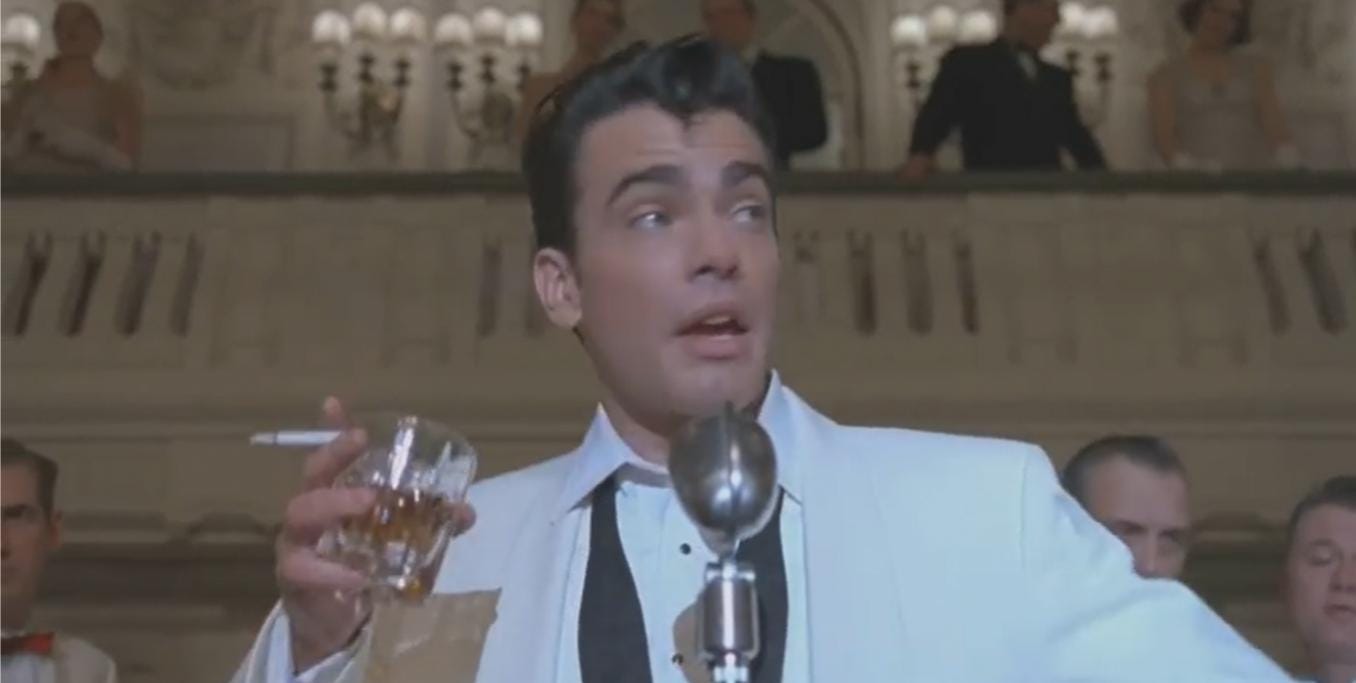Classical Music and the Shawshank Redemption
These are dark days, but hockey may offer some hope. Intrigued? Read on...
For the past several years, I have been despairing of hope as cancel culture engulfs and devours our institutions and manages to sustain an all-out assault on traditional cultural mores, seemingly in favour of anything that is not representative of the culture borne of Western civilisation.
I can recall acquaintances who made no secret of their hatred of religion (organized or otherwise) and directed such at the Roman Catholic church, the Pope, Catholic priests, and cathedrals. Yet, these same individuals were all too willing to bend over backward to be accommodating to Islam, Buddhism, Hinduism, or virtually any other non-Christian sect (non-denominational fellowships were the most loathed among most of these folks, with the exception of the Unitarians and/or Universalists). When questioned why these, if the issue truly is with religion as an institution, the reply was to the effect of, “…they’re not Christian.” I must admit I was taken aback by the candor, but not by the hypocrisy. These were, and likely are, still considered by other like-minded folks, as well as and especially themselves, to be among the more enlightened, and identified as being among our moral, ethical, and intellectual superiors.
Never mind that the Church, as part of the Third Estate has had an outsized influence on much of our culture dating back to the Greeks, and in which the endeavours of art, science, jurisprudence, government, and education, all have their roots. Out of these grew almost all of the individual liberties our forebears enjoyed, as do we, though to a shockingly diminishing degree.
The potential for the tremendous harm of political correctness, the evil and bitter seed from which the Woke religion sprouted and has begun to take root, I saw as many as thirty-some years ago with the controversy surrounding the exhibit “The Last Act: The Atomic Bomb and the End of World War II,” at the Smithsonian.
…it emphasized the horror and suffering of Japanese civilians at the hands of American aggression. The bombs killed 210,000 Japanese. They also argued that the tone of the script suggested that the United States should not have dropped the bombs in August, 1945, a situation that many veterans and historians said was unfair.
Despite the apparent value of many publicly funded museums in the same tradition as the Smithsonian, the fact that they were publicly funded never sat well with me mainly because whoever controlled the funding, controlled the organization, what it represented, who it served – along with its narrative.
I suppose that there is an argument to be made in favour of such institutions being funded by taxpayer dollars. Otherwise, how would the voices of veterans, especially those who not only served in WWII, but actually served in the Pacific, be heard? That argument, however, was rendered moot and invalid as my worst fears were confirmed when petty, racial politics reared its ugly head to very publicly snub US Supreme Court Justice Clarence Thomas, and deny his accomplishments as an individual, as among this nation’s pre-eminent jurists, and contribution to one of the best stories this nation has to tell.
When it comes to doing that which is right, I suppose late is better than not at all, but the effect is the same. The fact that it was intentionally omitted from the outset makes any apology offered almost insulting, and actually makes the corrective action all but meaningless.
The new installation was added shortly before the museum marked its first anniversary September 24 and may or may not end a long-simmering controversy over the museum’s treatment of Thomas.
Before the addition, the only reference to Thomas, the second African-American justice in history, was in a display about Anita Hill, who accused Thomas of sexual harassment during his confirmation hearing in 1991.
After all, is not justice delayed justice denied?
An argument in favour of publicly funded institutions like museums is even less valid now, as it is largely through privately funded institutions and foundations that woke capital finances much of the efforts of the religion’s namesake to effect the Great Reset which, if achieved, would be the cultural, societal, and socio-economic equivalent of Sherman’s March to the Sea.
The danger posed by the power of woke capital and its multiplier effect as leveraged by the Donor Class to achieve its ends virtually unobserved with no checks, whatsoever, is but one reason I was more than a little pleased with the election of J.D. Vance to the US Senate. His analysis is spot-on and, I believe, offers a roadmap to stopping woke capital in its tracks.
However, it is not just publicly funded public institutions, and those of higher education, that have been terminally infected by governance and operational polices borne of political correctness, but now, political correctness has reached critical mass in the arts.
The trouble began for Lincoln Jones, as it did for so many in the summer of 2020, with the black square.
He became increasingly unsettled by what he saw as coercive demands on speech and behavior. “I specifically don’t make art political, but the arts were becoming a tool of an ideology,” Jones, who is white, recalled.
Suddenly, in the summer of 2020, questions swirled over whether his company ought to post the black square, which signified support for Black Lives Matter, on their company’s official Instagram.
“One of the things I will not do is hire by race or give preference by race,” he said. “Ballet does discriminate, just not by race. This is a highly athletic art form that discriminates by body, talent, and artistic sensitivity. You have to have a certain kind of feet and proportions. It’s not just a convention. It’s like an opera singer having a loud voice.”
So Jones pushed back against the agent’s advice. “I told him I don’t hire by race, and he said, ‘If you say that, you’ll never work again.’
Chilling, to say the least.
To be honest, I am reasonably certain that there is so much destruction that has taken place out of the sight of the public eye than that which gets mentioned.
That of which we know or may be aware likely doesn’t even begin to scratch the surface of the irreparable harm that cancel culture has wrought as the high priests and priestesses of the Woke religion, with its wildly arbitrary standards, will stop at nothing to achieve their twisted “moral” ends.
Not content to work within the confines of any code of ethics to simply advance their cause(s), anything and anyone that might expose the religion for the sham it is, must be destroyed. If there is a more harsh indictment that their ideas (so-called) could not withstand critical examination, would not emerge from a debate of their merits, and would not survive for a minute in a true marketplace of ideas, I don’t yet know of it. These zealots have laid waste to distinguished careers, valuable works of art of literature, theater, music, ballet, sculpture, and the institutions dedicated to not only preserving these art forms and expressions of each but allowing them to flourish.
Of all the arts, it is music that I have treasured, and valued above all. Music stirs the soul like no other form of artistic expression. If you are living, breathing human being with blood coursing through your veins, it is impossible to listen to any symphony composed by Beethoven in its entirety and not be moved to some kind of emotional expression. My personal favourites are the fifth (fourth movement), seventh (second movement), and ninth (movements three and four).
The same holds true for Tchaikovsky’s fifth symphony (the second movement, especially), Wagner’s, “Prelude and Liebestrod,” and the aria, “Donde lieta usci” from Puccini’s, “La bohème,” despite it seeming to be the first opera anyone experiences courtesy of the film, “Moonstruck.”
I thank God for films like, “A Room with a View,” “Gallipoli,” and, “Manon of the Spring” and many others that incorporate some of the best of opera into their soundtracks, otherwise most folks might never encounter such a beautiful art form.
Despite the fact that in high school I was in Band, I have always favoured Orchestra. Perhaps because almost all of the music I loved most – classical – was written for the strings of violins, violas, cellos, and upright stringed bass (that are felt, more than heard), clarinets and double-reed instruments like, oboes, English horns, and bassoons. Orchestras, unlike bands, were elegant, nuanced, and unassumingly confident – Orchestra knew what it was, and needed to impress no one. Orchestra had a bucolic, pastoral air about it. The members of Orchestra dressed for concerts in black tuxedos and elegant gowns of dark, muted colours with the exception of the pianist (if female) performing a piano concerto by Tchaikovsky, Beethoven, or Mozart.
By contrast, Band was boisterous, a little more loose, maybe even a little flamboyant. It wasn’t Orchestra that played at the pep rallies for the Homecoming football game, or for pep rally sending the basketball team on its way to the opener of the first post-season tourney, the first step toward playing in the state tournament. No, it was Band – THE Band.
Only in comparison to Orchestra could Band be relatively cool – otherwise, we were every bit the geeks as were the misfits in Drama Club.
No one toils in the field, let alone makes a career, of classical music unless they love it. Those who do make a career of it, do it not to become wealthy. The vast majority of those who graduate from elite institutions such as Julliard, Berklee, Eastman, or New England Conservatory, should they manage to land chairs with any professional orchestra, will need to teach to supplement their incomes – either private lessons, or at a public school, or perhaps even a private prep academy to make ends meet. A professorship at a college or university is still teaching, and not at a grade that affords much in the way of luxuries.
Conductors, who also serve as the music directors with major orchestras perhaps do better, but many still teach, and odds are that if they are composing original works, the rights to such do not command what a pop or country song does.
If there is big money to be made in classical music composition, it is writing scores for films. Don’t believe me? Look at Quincy Jones, James Newton Howard, Mark Isham, the late Ennio Morricone, or Thomas Newman – even Danny Elfman left the already lucrative new-wave music genre to compose the theme for “The Simpsons,” as well as for, “PeeWee’s Big Adventure,” “Sleepy Hollow,” and “Back to School” – hardly epic films of their day, but they paid, and paid well. The Leonard Bernsteins, John Williamses, Michael Tilson Thomases, and Ricardo Mutis are the exception, not the rule.
All of this to demonstrate that by and large, those who do make a career of it do so for only one reason – they love it. They love sharing their passion with young musicians that they may come to love it as well. They love helping them grow into the artists that they, themselves, might have become – which brings me to this tragedy. The more I read of the horrific events which transpired in 2020, the more I wept.
Here’s the curious case of Dona D. Vaughn and the state of operetta in 2020. As artistic director of opera at Manhattan School of Music (MSM) Miss Vaughn got fired for putting on Lehar’s Das Land des Lächelns (1929). Actually, she got “cancelled” via an online petition the aim of which was to “take action now”: “Now is the time to make MSM a safe institution for all of our young artists!”
A little later someone at change.org announced that Miss Vaughn had indeed been removed from her position. “Victory,” claimed Amy Kuckelman and thanked everyone who supported the petition: “The work is never over and I hope you feel strengthened by this victory,” writes Kuckelman.
You might wonder what exactly went on, what ‘work’ wasn’t over, and who is now ‘strengthened’ by this affair?
Dona D. Vaughn seems to have been just another “victorious” casualty along the way, like the various statues that have come toppling down the world over, without starting a multi-layered debate they simply got smashed by the mob. Making the world a “safer” place?
Fritz Löhner-Beda experienced where such mob dynamics can lead to. He was “cancelled” from all playbills in Germany after 1933, and he died in a concentration camp, beaten to death.
Obviously, that’s not quite the same as the current woke activism. But what’s similar is this: the Nazis also sent their troops into theaters in so called “Wilde Maßnahmen” (wild actions) causing so much terror and angst that many people stopped putting on shows or engaging particular artists that they knew would bring on such “actions.”
It doesn’t have to be this way, though, does it? Apparently, it does. The administrators of elite schools are not innocent bystanders, caught up in a rip-tide from which there is no escape except to ride it out until it abates, if one Damian Woetzel, the esteemed Juilliard School’s president, and its Director of Equity, Diversity, Inclusion, and Belonging Initiatives, is any indication. He pledged, “that the school would become a ‘community that not only rejects racism, but that is actively anti-racist, working to tear down systemic racism and injustice.’”
Sadly, it gets worse. In the two-part article, “Classical Music’s Suicide Pact” that appeared in City Journal, in the summer of 2021:
Classical music is under racial attack. Orchestras and opera companies are said to discriminate against black musicians and composers. The canonical repertoire—the product of a centuries-long tradition of musical expression—is allegedly a function of white supremacy.
The campaign against classical music is worth examining in some detail, for it reveals the logic that has been turned against nearly every aspect of Western culture over the last year.
Black musicians produced manifestos complaining of their mistreatment at the hands of white administrators and conductors. Weston Sprott, a trombonist with the Metropolitan Opera Orchestra, along with three musicians from three other ensembles, declared in the New York Times that the reason there are not “more Black artists in orchestras” is “racism.” Six black opera singers made a YouTube video about opera racism at the invitation of the Los Angeles Opera.
All this time, I was labouring under the impression that only the most accomplished musicians – instrumentalists (especially pianists), singers, other performers like ballet dancers made the cut with the top orchestras, opera companies, and dance troupes. It never occurred to me that it could be racial.
Academia, the source of today’s race obsession, weighed in with gusto. The Music Library Association decried its complicity in the “marginalization and extrajudicial killing of people of color, particularly Black and indigenous individuals.” A music theory professor from Hunter College, Philip Ewell, received widespread acclaim for his denunciations of classical music racism.
Ewell has whiteness on the brain. Since everything is about race, according to Ewell, any time you seem not to be talking about race—referring to someone’s piano skills, say—you are actually talking about race by dint of ignoring the topic. (Connoisseurs of deconstruction will recognize the rhetorical technique here of turning an “absence” into a supposed “presence.”)
Honestly, I don’t think Orwell could have conceived of anything even close to this.
Are not the patrons, are not the individuals behind the corporate sponsorships, the administrators, outraged at what is happening? They are not.
Not one leader in the field has defended Western art music against these charges. Their silence is emblematic. Other supposed guardians of Western civilization, whether museum directors, humanities professors, or scientists, have gone AWOL in the face of similar claims, lest they themselves be denounced as racist.
Do they not value what the arts represent, both their individual and collective contribution to the richness of the culture? Again, they do not.
Part Two of, “Classical Music’s Suicide Pact” covers Dona Vaughn’s disgraceful dismissal by the Manhattan School of Music, but goes on to relate a similar and equally cowardly act on the part of the University of North Texas in its dismissal of Timothy Jackson, a music theory professor, the director of the Center for Schenkerian Studies, and the editor and founding member of the Journal of Schenkerian Studies.
After Philip Ewell launched his race-based attack on Schenkerian music theory in November 2019, Jackson put out a call to members of the Society for Music Theory (including to Ewell) to submit a response. The majority of essays…were critical—some timidly, others more forthrightly; five were supportive. Few stated the obvious: that to equate tonal hierarchies with racial hierarchies is lunatic.
Nonetheless, despite standing against the utter nonsense, and making a vigorous, and an all but idiot-proof, exceedingly well reasoned, and water-tight defense, it was to no avail – the self-proclaimed anti-racist warriors (a better name for them is the Gestapo, or maybe Stasi) are immune to reason.
In December, Jackson was removed from his editorship of the Journal of Schenkerian Studies. The chair of Jackson’s department informed him that the university was ceasing its financial and institutional support for the journal and for the Center for Schenkerian Studies. Jackson is suing the university and the university’s regents for violating his First Amendment rights.
Two years on and I am still in shock.
The biggest victim in the racial attack on classical music is the music itself. Once the poison of identity politics is injected into a field, it can never recover its prelapsarian innocence. At a Peabody Institute conference in February 2021, the League of American Orchestras’ Simon Woods voiced his dread at seeing the “whiteness” on the stage and in the audience, once concerts resume. This is professional malpractice: the irrelevant lens of race will drive desperately needed new audiences out of, not into, the concert hall.
The only reason these miscreants have been able to wreak as much havoc, to do as much damage as they have is because no one is willing to put up any real resistance. These woke clerics are little more than modern-day Bolsheviks, taking to heart Lenin’s admonition, “You probe with bayonets: if you find mush, you push. If you find steel, you withdraw.”
We desperately need those who are in a position to do so to be the steel that stops these tyrannical bullies in their tracks. If they can be neutralized, they can be defeated, but no one seems to have the stomach for the fight. I can’t help but conclude that there are much darker forces at work, because those who are in charge are the ones leading this purge.
However, the two recent events that give me the slightest glimmers of hope come not from the world of the arts, but rather our popular culture, more specifically, professional sports entertainment. Not surprisingly, it occurred in the sport of hockey.
On Tuesday, January 17, 2023, one Philadelphia Flyers defenseman Ivan Provorov refused to wear the prescribed ‘pride’ sweater to genuflect to the rainbow authoritarians in honour of the team’s observance of Pride Night, a giant signaling of virtue to the LGBTQWXYZ mafia.
The blowback was to be expected, but I submit that some folks must live in absolute terror of the wrath of the Pride Patrol, like NHLN’s E.J. Hradek who protested just a little too much, for my liking. Kudos though, to Flyers head coach John Tortorella who addressed the situation postgame, saying he, “…respects Provorov for being ‘true to himself.’”
Now, if that wasn’t encouraging enough (and by golly, don’t you think it ought to be?), on Friday, January 27, 2023, the entire New York Rangers team ditched the rainbow-themed sweaters in a collective repudiation of the expected genuflection to the entire LGBTQWXYZ syndicate. The Rangers are Kramer!
I can only hope that this begins the reclamation of our culture from the modern-day Ottoman Empire. Hope – like Andy Dufresne, observed, “…is a good thing. Maybe the best of things – and no good thing ever dies.”
Thank you, dear reader, for your time, and your indulgence!







Nice piece. That's how you tie it all together. I especially love the close.
There's so much to talk about in here, as there always seems to be with what you write, but the one thing that I find morbidly interesting is the lack of realization that "woke" is a religion. As much as with any other religion, the conclusions drawn among the "woke" can't be born out by science. They cannot be empirically proven. We're supposed to simply go on faith, but it's insulting to remind them that it is all faith, which is true of any fundamentalist sect. For example, one might philosophically argue that gender is a societal construct. But what one can never prove is that that construct is arbitrary enough that beings with XY chromosomes, with all the strength and size that confers, are no different than beings with XX chromosomes with a little cosmetic surgery and medication. That requires faith, and yet we're meant to accept it as scientific fact, which is to say as gospel.
I have not been a religious person for a long, long time, and I suppose that helps me step back. But I do think people *need* religion. Most of us are programmed so we cannot survive without it, and if it is not imposed upon us, we will create it. We will make "gods" and "commandments" to separate the "chosen" from the "damned." What is happening became much more understandable when I grasp that fact. We need to make more people understand that, just like Marxism and Leninism was for the Russians and Maoism was for the Chinese, "woke" is a religion here, and an equally destructive one. (If you want to laugh, bitterly, find Bill Maher's "New Rule" from Friday about "woke." He's part of the problem, but if you're looking for a little hope that we might get a handle on this, his takedown is worthwhile--even if I suspect it might be a little too late.)
Two other small notes: a couple of the best string performers I ever saw at our local theater were two young black men who put their own twist on classical music. I think what happens more often is mediocre people hide behind the victim card to cover their mediocrity, and we get this "classical music is racist" crap.
And how long were you in Europe? I notice you use a lot of British spelling.
Everyone Else: "Oh, gawd, no - there's more?" Pi: *shrug*
"All this time, I was labouring under the impression that only the most accomplished musicians – instrumentalists (especially pianists), singers, other performers like ballet dancers made the cut with the top orchestras, opera companies, and dance troupes. It never occurred to me that it could be racial."
I've been looking forward to this part just to ask: Why does racism only ever work one way? I literally just heard the guy on the radio make a comment about why no one seems to care that there are hardly any women working as masons. That women are so underrepresented on oil rigs. That there are so few short white guys in the NBA. This is that: If you want to play Classical Music, play Classical Music.